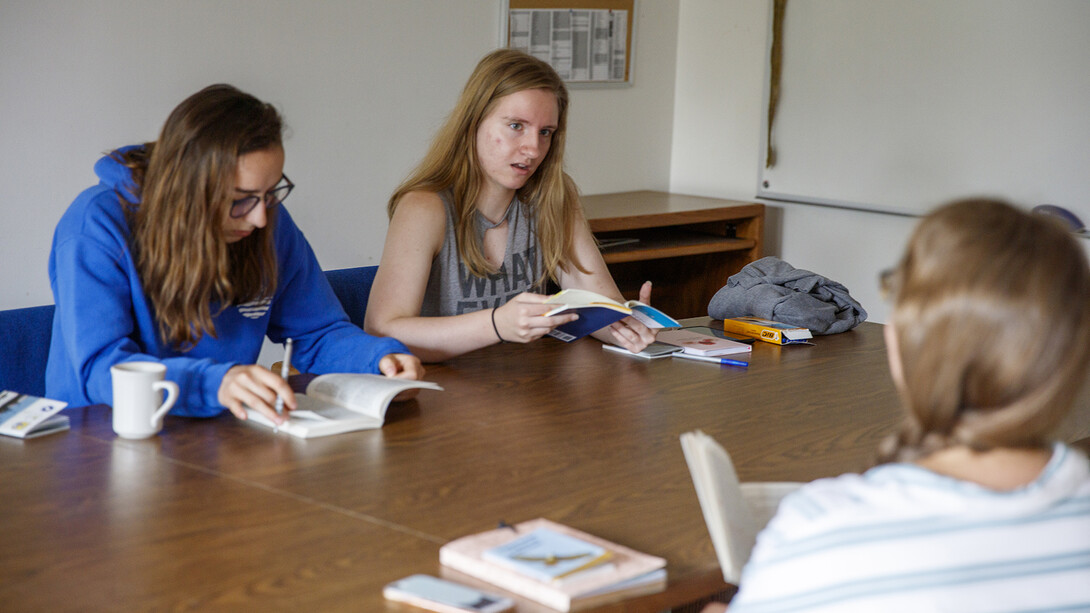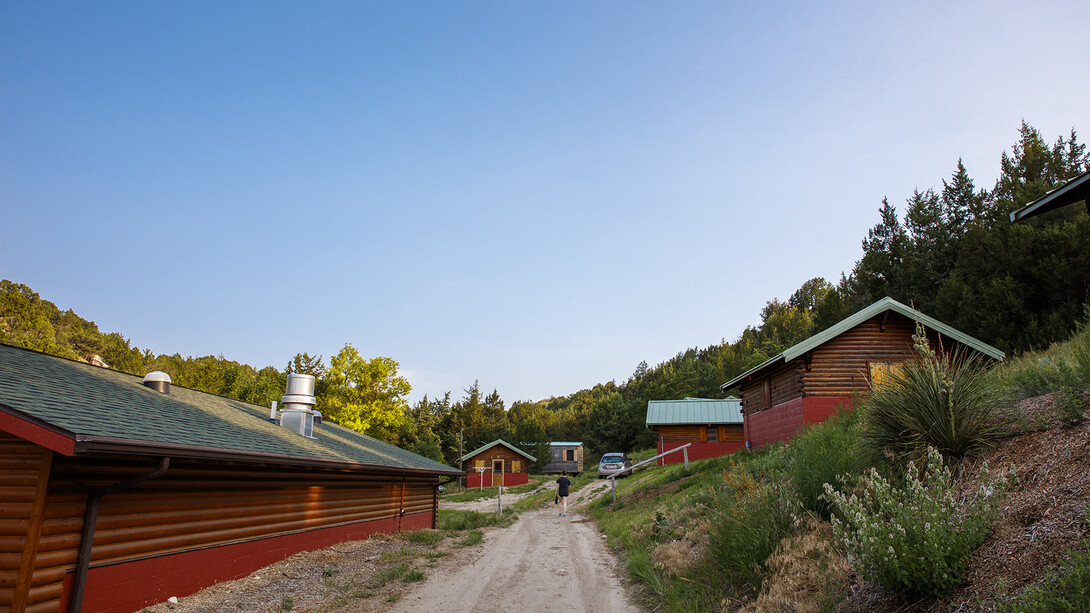
Husker students embedded themselves into the sights, sounds and scenes of prairie authors this summer.
Through "Literature in the Environment," a course offered by the University of Nebraska–Lincoln's Department of English, they explored the texts of regional authors while experiencing a similar environment to what the authors once lived in.
They traveled to Ogallala, Nebraska, where the class was held at Cedar Point Biological Station. Located across from Lake McConaughy, Cedar Point is a field-based experiential classroom and research facility. It provides students, faculty and staff an opportunity to live, work and study in the surroundings of western Nebraska.
Built in 1960 as Cedar Point Range Girl Scout Camp, Cedar Point was purchased by the university from the Gainesforth family in 1975. The station has traditionally hosted a variety of scientific research projects, including courses in parasitology, herpetology and biology. In recent years, it’s also become a space for artists, poets and the occasional English student.
At the station, things are relatively quiet. It’s an undisturbed area where nature feels untouched. A flock of turkeys trot across the campus. Prairie grasses stand tall and strong on the hiking trails. In the distance birds and bugs compose a small symphony.
Minus the laptops that litter the camp and the cars waiting in the parking lot, it’s not too far off from what the legendary Great Plains authors once lived in.
“I loved being in nature,” said Kaylen Michaelis, a student in the course (ENGL 317). “And I think it helped facilitate a lot of the discussions of my course.”

The course was led by Emily Rau, a recent doctoral graduate from the English department and managing editor of the Willa Cather Archive. She had been to Cedar Point prior to teaching the course but had never explored it in the way she did during her two weeks as an instructor for ENGL 317.
Rau brought together authors like Willa Cather, Walter Echo Hawk and Loren Eisley for a thorough reading list that brought forth both indigenous and colonial perspectives of the times.
“I decided to change the theme of the class a bit, so it's still literature and environment obviously, but it's also bringing together indigenous voices and voices from a settler colonial background,” Rau said.
The course featured ten literature pieces that were discussed twice daily during class meeting times, and students were expected to have read up to 80 pages of the text between each meeting. Additionally, students filled out a journal that provided a deeper insight to their own experiences and epiphanies.
“They have to keep a reading/nature journal the whole they're here, and they have to do an entry, every day...where they will be like reflecting on the reading — I'll be giving guiding questions for them to do that — but also like reflecting on being in this place because a big part of the point of the class is to have a real immersive experience,” Rau said.
In addition to keeping their journals and doing their twice-daily discussions, the students also provided a research paper at the end of the course over a topic of their choosing. To break up their meetings and to truly envelop the students in the atmosphere of Ogallala, Rau would lead hikes or day trips to Lake McConaughy. The class even ventured to Fort Robinson, located west of Chadron in the northwest corner of Nebraska.
For the students in ENGL 317, the course provided an immersive, nature-filled way of fulfilling their studies. As an English major with a minor in Native American studies, Michaelis signed up for the course knowing that it would count towards her credits, but also because of her distinct interest in the humanities.
“I'm really interested in humanity's relationship with nature...so I'm excited to delve deeper into that, because now there's lots of different perspectives of how humanity kind of fits in.” Michaelis said.
For fellow student Sarah Hawkinson, the class was an exciting way to examine a subject she doesn’t often study as a biochemistry major.
“I thought this was a fun way to kind of see a different side of literature,” Hawkinson said.







